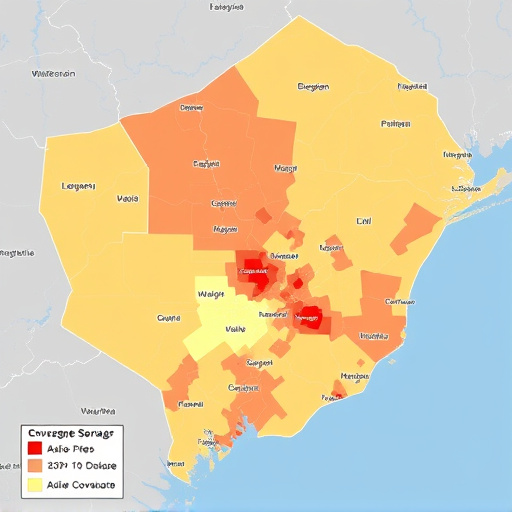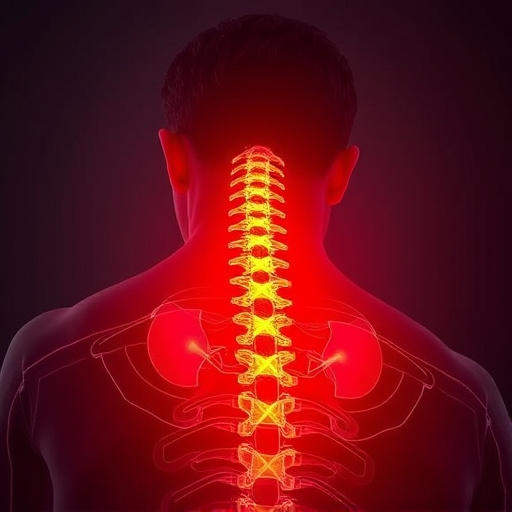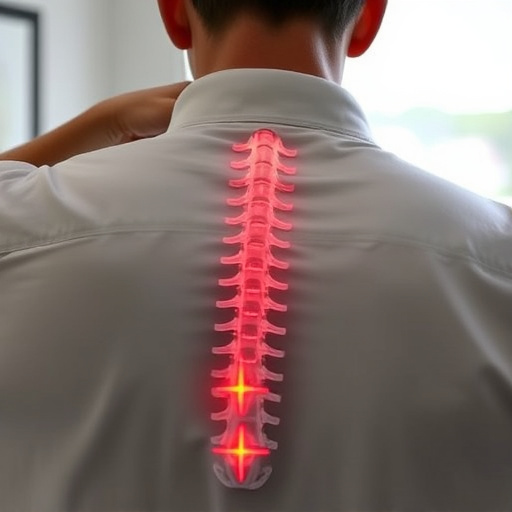Compressed nerve discomfort, caused by pinched or compressed nerves, can significantly impact daily activities with symptoms like intense pain, numbness, and weakness. Recognizing these symptoms early is crucial for effective treatment, with PIP insurance's 14-day rule facilitating swift claims and medical intervention. This rule allows individuals to seek immediate care without prior approval, helping prevent long-term damage and enhancing quality of life. By adhering to the timeline and leveraging PIP benefits, including coverage for diagnostic tests, physical therapy, and alternative treatments, people can manage nerve discomfort and avoid chronic conditions.
Finding Relief from Compressed Nerve Discomfort: A Comprehensive Guide
Compressed nerves can cause debilitating pain and discomfort, affecting mobility and daily life. This guide aims to illuminate effective strategies for managing and alleviating nerve-related issues. We explore the role of PIP (Personal Injury Protection) insurance in covering nerve-related injuries and its 14-day rule for claims. Learn about diagnosis, treatment options, and preventative measures to combat compression injuries. Additionally, real-life success stories offer valuable insights into navigating PIP claims for nerve pain relief.
- Understanding Compressed Nerve Discomfort and Pain
- The Role of PIP Insurance in Covering Nerve-Related Issues
- 14-Day Rule: What You Need to Know for Effective Claims
- Diagnosis and Treatment Options for Alleviating Nerve Pressure
- Preventative Measures to Avoid Compression Injuries
- Real-Life Success Stories: Navigating PIP Claims for Nerve Pain Relief
Understanding Compressed Nerve Discomfort and Pain

Compressed nerve discomfort and pain can significantly impact a person’s daily life, causing debilitating symptoms that affect mobility and overall well-being. This condition occurs when a nerve or group of nerves becomes compressed or pinched within the body, often due to various factors like repetitive motions, injuries, or structural issues in the spine. The affected area may experience intense pain, numbness, tingling, or weakness, depending on the specific nerve involved.
Understanding this condition is crucial for effective relief and treatment. Many individuals suffering from compressed nerve discomfort seek assistance through PIP (Personal Injury Protection) insurance, which often includes a 14-day rule that allows policyholders to initiate claims promptly after recognizing symptoms. Early intervention can be game-changer in managing pain and preventing long-term damage, ensuring folks get the relief they need for a better quality of life.
The Role of PIP Insurance in Covering Nerve-Related Issues
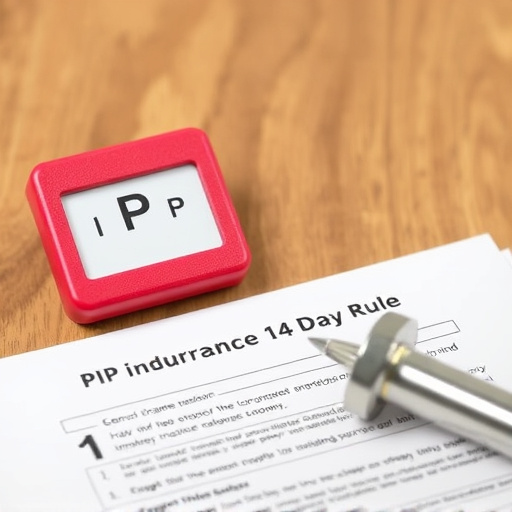
PIP (Personal Injury Protection) Insurance plays a significant role in providing financial relief and coverage for individuals experiencing nerve-related issues and discomfort. This type of insurance is designed to protect policyholders against unexpected medical expenses and income loss resulting from accidents, including those that may cause nerve compression or damage. When it comes to nerve-related injuries, PIP offers essential support by covering diagnostic tests, physical therapy, and in some cases, even alternative treatments.
One key aspect of PIP Insurance is the 14-day rule, which allows policyholders to initiate medical treatment within a specified timeframe without requiring pre-approval from their insurer. This provision is crucial for nerve-related issues as prompt medical attention can often mitigate long-term damage and alleviate pain effectively. By ensuring accessibility to healthcare services, PIP Insurance empowers individuals to take control of their recovery process, promoting faster healing and improved quality of life.
14-Day Rule: What You Need to Know for Effective Claims

When filing a claim for compressed nerve discomfort and pain through PIP (Personal Injury Protection) insurance, understanding the 14-Day Rule is crucial. This rule dictates that medical treatments or services related to your injury must be initiated within 14 days of the incident causing the discomfort. Failure to adhere to this timeline can lead to complications in processing your claim.
The 14-day period starts from the date of the accident, and it applies to all diagnostic tests, treatments, or therapies required to address the compressed nerve condition. This rule is in place to ensure prompt care and to facilitate a smoother claims process. Remember, timely action not only enhances your chances of successful claim approval but also contributes to a faster recovery.
Diagnosis and Treatment Options for Alleviating Nerve Pressure
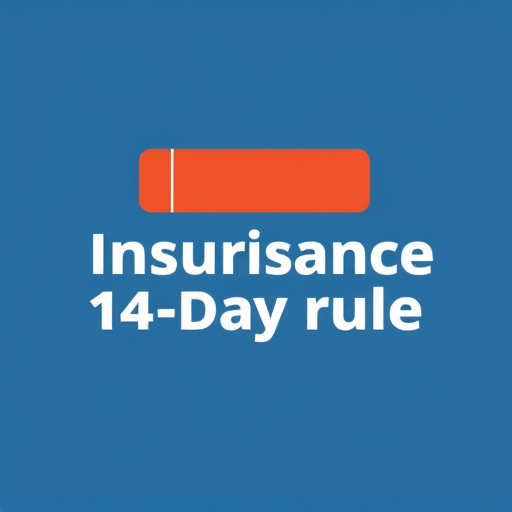
Diagnosing nerve compression involves a thorough medical examination, including a review of symptoms and physical tests to identify specific nerve involvement. Medical professionals may utilize imaging techniques like X-rays or MRI scans to visualize the affected area and confirm the diagnosis. Once identified, treatment options aim to reduce pressure on the nerve and alleviate pain.
Common approaches include rest, ice, compression, and elevation (RICE), along with over-the-counter pain medications. Physical therapy plays a crucial role in strengthening supporting muscles and improving posture, thereby relieving pressure on nerves. In more severe cases, corticosteroid injections may be recommended to reduce inflammation around the compressed nerve. Additionally, PIP (Point of Care) insurance often covers these treatments under their 14-day rule, ensuring accessibility for those seeking immediate relief from nerve discomfort.
Preventative Measures to Avoid Compression Injuries
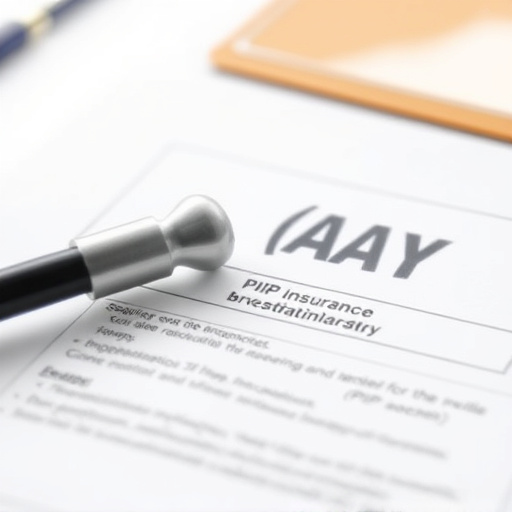
Preventing compression injuries is key to managing nerve discomfort and pain. Those with occupations involving repetitive tasks or prolonged periods in one position are at higher risk. Implementing simple preventative measures can significantly reduce the likelihood of such injuries. One crucial step is adhering to the 14-day rule, often covered by PIP (Personal Injury Protection) insurance. This involves avoiding repetitive actions that compress nerves for extended periods without breaks; even brief rests can help.
Additionally, maintaining proper posture and taking regular, scheduled breaks can work wonders. Ergonomic tools and equipment designed to support the body during work or study are also beneficial. Ensuring a comfortable workstation setup, especially for those who work from home, is an effective way to prevent nerve compression injuries.
Real-Life Success Stories: Navigating PIP Claims for Nerve Pain Relief

Many individuals suffering from compressed nerve discomfort and pain have found relief through Personal Injury Protection (PIP) insurance claims. These real-life success stories highlight the significance of understanding and navigating PIP benefits, especially when it comes to treating chronic nerve conditions.
The 14-day rule is a crucial aspect often overlooked by policyholders. It dictates that medical treatments or services initiated within 14 days of an accident or injury are covered under PIP insurance. This means that if you’ve experienced nerve pain due to compression, seeking immediate medical attention and adhering to the recommended treatment plan can ensure your expenses are covered. Many patients have successfully availed themselves of this benefit, leading to improved quality of life and reduced financial burden associated with their condition.
